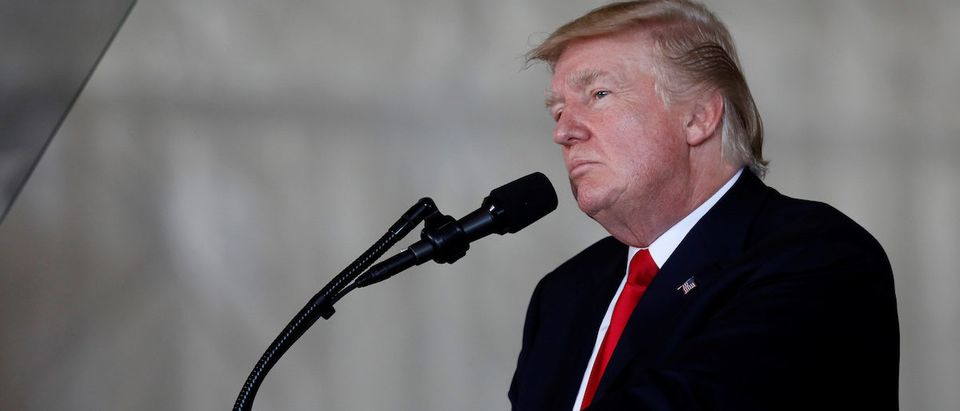President Trump has faced an unprecedented number of leaks from our Nation’s spy agencies that have plagued his young Administration. A recent Senate majority report from the Committee on Homeland Security and Governmental Affairs found that 62 leaks “containing information that is potentially damaging to national security” occurred in Trump’s first 126 days in office. The leaks were the subject of 125 news stories, which, the report said, is “about seven times” more than both President Obama’s and President Bush’s first 126 days.
About 35 of the stories featured information relating to the investigation into Russia’s meddling in the election, and specifically targeted members of Trump’s 2016 presidential campaign and his current administration.
Leaks of the most sensitive kind—containing information received from intercepted phone calls—already took down Michael Flynn, President Trump’s first national security adviser, when the contents of his phone calls with the Russian ambassador, Sergei Kislyak, were leaked to The Washington Post. Flynn broke no laws by speaking via telephone with Kislyak. But the fact that he had spoken to a Russian was all that was needed to convict him in the court of public opinion.
Numerous other leaks alleging, but never substantiating, inappropriate contacts with Russian nationals have originated from our nation’s spy agencies and the special counsel’s office. “Trump Campaign Aides Had Repeated Contacts With Russian Intelligence,” screamed one headline in The New York Times. The story was exposed as a total lie during former FBI director James Comey’s testimony, in an exchange with Senator James Risch of Idaho:
RISCH: OK. So — so, again, so the American people can understand this, that report by the New York Times was not true. Is that a fair statement?
COMEY: In — in the main, it was not true.
Comey was asked again about The Times’ story by Senator Tom Cotton of Arkansas, and provided a more direct answer:
COTTON: On February 14th, the New York Times published a story, the headline of which was, “Trump Campaign Aides Had Repeated Contacts With Russian Intelligence.” You were asked earlier if that was an inaccurate story, and you said, in the main. Would it be fair to characterize that story as almost entirely wrong?
COMEY: Yes.
Anyone would be understandably frustrated by the consistent and malicious publication of patently false information.
Prosecution of those who leak provides one remedy. But not only are leakers hard to find, there is obviously no consequence for “leaking” fake information that would be considered “classified” if it were true.
Another option for striking back at leakers is the President’s power of the pardon. I’m not talking about pardoning the leakers, of course. To the contrary, I’m talking about pardoning those who are the subject of the leaks.
There are many reasons why the details of an investigation are supposed to remain secret.
One reason is that it protects a suspect if charges are never brought. Indeed, for some, the mere fact that an investigation exists is enough evidence to render a guilty verdict in the court of public opinion. Secrecy avoids that rush to judgment.
In tandem with the first, another reason investigatory secrecy is beneficial is that it maintains the due process rights of a subject should he or she officially be charged with a crime. This is because the press can fundamentally abridge the right to a fair trial with hysterical news coverage.
Far from a novel legal concept, the Supreme Court has spoken on this issue. In Sheppard v. Maxwell (1966), the Supreme Court reversed the conviction of a man accused of murdering his wife, because, among other things, the trial court failed to “control the release of leads, information, and gossip to the press by police officers, witnesses, and the counsel for both sides.” Naturally, as the Court said, “[m]uch of the information thus disclosed was inaccurate, leading to groundless rumors and confusion.” The Court concluded that “[c]ollaboration between counsel and the press as to information affecting the fairness of a criminal trial is not only subject to regulation, but is highly censurable and worthy of disciplinary measures.”
Almost all of the current Russia coverage has been prejudicial. The New York Times, for example, penned an editorial floating the possibility that “the presidency was effectively stolen by a hostile foreign power.” Precisely zero evidence has surfaced that comes close to substantiating that claim, which demonstrates the inherent problem addressed in Sheppard v. Maxwell—namely, press hysteria.
The leaks and innuendo emanating from the intelligence community and their allies in the press are clearly intended to take down the president or his inner circle without even presenting the underlying raw evidence in a neutral forum free from bias.
Accordingly, the president could pardon the subject of all future leaks to spite those that seek to oust him.
The impact of such a pardon would be two-fold. First, and most obvious, it could potentially shield someone from criminal liability that actually committed a crime. Second, it would have a chilling effect on those who seek to weaponize our nation’s intelligence capabilities against our democratically elected government, and incentivize would-be leakers to present any evidence of apparent wrongdoing to the proper governmental body, rather than the press.
An unintended net benefit to pardoning the subject of leaks might also be making the press think twice before publishing information purportedly from the Russia investigation. The national press corps, for the most part, does not like the President. Hastening the demise of the Trump Administration would be more difficult if pardons were handed out in response to “bombshell” stories.
The power of the presidential pardon is absolute, and subject to virtually no limitation. (Even whether the president could pardon himself is still an open question subject to strenuous debate in the legal community.) Suffice it to say that the power of the pardon could function as a blunt force instrument to deny the President’s detractors the satisfaction of seeing his Administration continually face the prospect of “death by a thousand leaks.”


